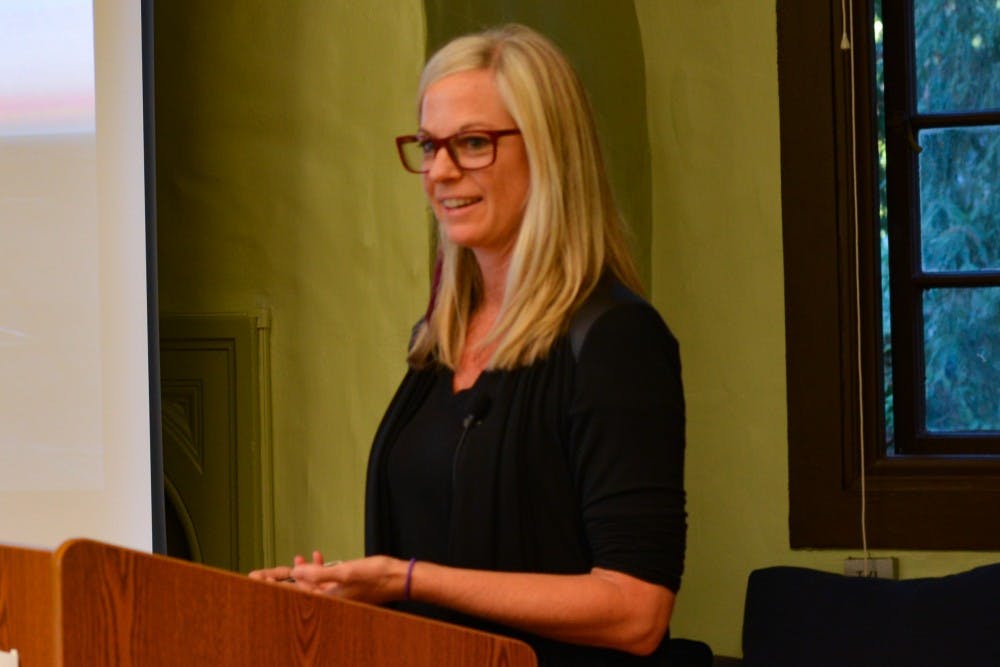
A former visiting scholar at Penn’s Annenberg School for Communication was recently named a 2018 MacArthur Fellow.
Lisa Parks was one of the 25 fellows who received the “genius" grant this year. The annual award recognizes “exceptional creativity” among professionals in various fields. The 2018 class includes a poet, a human rights lawyer, a painter, and a neuroscientist, among other professionals.
The John D. and Catherine T. MacArthur Foundation awards each fellow $625,000, distributed over the course of five years.
Past Penn affiliated fellows have included Penn Design Critic Mary Reid Kelly, bioengineering professor Danielle Bassett, and psychology professor Angela Duckworth, whose fellowships were announced in 2016, 2014, and 2013, respectively.
Established in 1981, the prestigious fellowships are given to those who demonstrate “promise for important future advances based on a track record of significant accomplishments, and potential for the fellowship to facilitate subsequent creative work,” the MacArthur Foundation website states.
Parks is recognized for her specialization in global information technology infrastructures, including satellites, drones, and surveillance systems. Her MacArthur Fellow biography indicates that her work specifically discusses the physical “flow of information and the multilayered relationships between media, technology, and geopolitics.”
Prior to her appointment as a 2014 visiting scholar at Penn, Parks served as professor and former department chair of Film and Media Studies at the University of California, Santa Barbara. She is currently professor of Comparative Media Studies at the Massachusetts Institute of Technology and directs its Global Media Technologies and Cultures Lab.
Her most recent book, "Rethinking Media Coverage: Vertical Mediation and the War on Terror", analyzes the idea of “vertical mediation” — defined as the space above the surface of the Earth occupied by satellites, airwaves, drones, and other communications technology.
Parks’ research has brought her to countries such as Mongolia and Zambia, where she participated in hands-on fieldwork.
“In Zambia, I learned how people with very limited economic resources still gained access to television signals, to radio broadcasts, and internet, but they do it in very inventive and different ways,” Parks explained in a video interview with the MacArthur Foundation.
The Daily Pennsylvanian is an independent, student-run newspaper. Please consider making a donation to support the coverage that shapes the University. Your generosity ensures a future of strong journalism at Penn.
Donate




